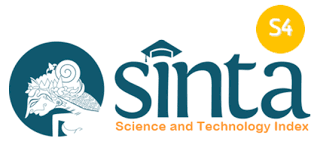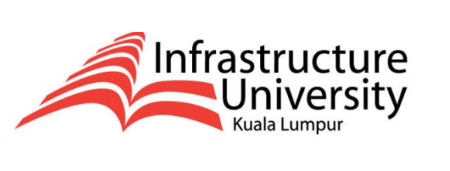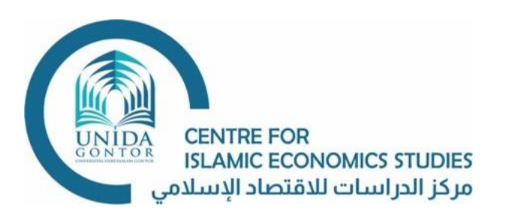How Zakat Responds to the Global Recession? An Implementation From Indonesia’s National Zakat Regency (BAZNAS)
DOI:
https://doi.org/10.21154/joipad.v3i2.7287Keywords:
zakat, global recession, redistribution of wealth, economic empowerment, social welfare.Abstract
The global recession is an economic phenomenon that can have a significant negative impact on various sectors of life, especially for more vulnerable people. In this context, this study aims to examine the role of Zakat in overcoming the impact of the global recession. Research Methods: This study uses a literature review approach by analyzing related documents. The data obtained is analyzed thematically to identify various mechanisms and strategies that can be used by Zakat in overcoming the impact of the global recession. Finding/Results: The results of the study show that zakat has great potential in making a significant contribution to overcoming the impact of the global recession. The role of zakat can be seen from several aspects, including Redistribution of Wealth, Economic Empowerment, and Improved Social Welfare. Conclusion: The findings of this study indicate that zakat can play a role in minimizing the impact of the global recession. This study is limited to the portrait of zakat management by the government, which is reflected in innovative zakat utilization programs but has not looked specifically at the direct benefits of zakat in improving the standard of living of the economy, one of which is through saving activities. In line with this, further research is needed on the integration of zakat in increasing economic activity and investment.References
Abror, M., & Hadi, M. N. (2022). Management of Zakat as the Instrument to Improve Economic Recession of COVID-19. AFEBI Islamic Finance and Economic Review, 5(01), 1. https://doi.org/10.47312/aifer.v5i01.368
Adlini, M. N. et al. (2022). Metode Penelitian Kualitatif Studi Pustaka. Jurnal Edumaspul, 6(1), 1”“6.
Alam, A. (2018). Permasalahan dan solusi pengelolaan zakat di Indonesia. Jurnal Manajemen, 9(2), 128. https://doi.org/10.32832/jm-uika.v9i2.1533
Awaliah Kasri, R. (2013). Giving behaviors in Indonesia: motives and marketing implications for Islamic charities. Journal of Islamic Marketing, 4(3), 306”“324.
BAZNAS. (2022a). Laporan Kaji Dampak Program BAZNAS RI 2022 Badan Amil Zakat Nasional. In Pusat Kajian Strategis (Puskas) BAZNAS. Pusat Kajian Strategis (Puskas) BAZNAS.
BAZNAS. (2022b). Outlook Zakat Indonesia 2022. Pusat Kajian Strategi BAZNAS.
BAZNAS. (2023). Potensi Peningkatan Kesejahteraan Mustahik Melalui Skema Istitsmar Dana Zakat. Pusat Kajian Strategis BAZNAS.
Fajrina, A. N., Putra, F. R., & Sisillia, A. S. (2020). Optimalisasi Pengelolaan Zakat: Implementasi dan Implikasinya dalam Perekonomian [Optimizing Zakat Management: Its Implementation and Implications in the Economy]. Journal of Islamic Economics and Finance Studies, 1(1), 100.
Mega Novita Syafitri, Novieati Dwi Lestari, Nuris Tishwanah, Nur Manna Silviyah, & Fitri Nur Latifah. (2021). Analisis Pengelolaan Dana Zakat sebagai Pemberdayaan Ekonomi Umat. AL-MAQASHID: Journal of Economics and Islamic Business, 1(2), 01”“10. https://doi.org/10.55352/maqashid.v1i2.228
Muizu, W. O. Z., & Effendi, N. (2015). Zakat: Instrumen Peningkatan Ekonomi Masyarakat. Pekbis Jurnal, 7(2), 74”“84. https://pekbis.ejournal.unri.ac.id/index.php/JPEB/article/view/2891%0Ahttps://pekbis.ejournal.unri.ac.id/index.php/JPEB/article/viewFile/2891/2830
Saifudin, N., & Murtafiqoh, N. L. (2022). Zakat in Facing the Challenges of Economic Recession. Proceedings, 6th Indonesian Conference of Zakat, 38”“47.
Sanaky, Yusril Arfan dan Amin, M. (2023). Resesi Ekonomi Global Dalam Perspektif Islam. Asy-Syarikah Jurnal Lembaga Keuangan, Ekonomi Dan Bisnis Islam, 5(1), 27”“37.
Saputra, T. A. et al. (2021). Benarkah Kebijakan Fiskal Islam Efektif Menghadapi Resesi? (Kontekstualisasi Kebijakan Fiskal Sesuai Shariah). Prosiding Seminar Stiami, 21(April), 85”“98.
Sari, A. P., Anggraini, D., Zaenardi, A. K., & Eksekutif, R. (2020). Menjadi OPZ Penyintas di Masa Pandemi. Policy Brief Puskas BAZNAS, 1”“8.
Sudiana, N. (2022). Saat Zakat Menjadi Penyelamat Resesi Ekonomi. Republika News. https://news.republika.co.id/berita/rkz3po282/saat-zakat-menjadi-penyelamat-resesi-ekonomi
Thoharul Anwar, A. (2018). Zakat Produktif Untuk Pemberdayaan Ekonomi Umat. ZISWAF : Jurnal Zakat Dan Wakaf, 5(1), 41. https://doi.org/10.21043/ziswaf.v5i1.3508
Waluyo, E. (2020). Peran Distribusi Ekonomi Islam : Suatu Metode Dalam Menghadapi Dampak COVID-19. In Minda Mahasiswa Indonesia: Antisipasi Resesi dan Krisis Pangan Akibat Pandemi. Syiah Kuala University Press. https://books.google.co.id/books?id=9akGEAAAQBAJ&printsec=frontcover#v=onepage&q&f=false
Zakiyah, K. (2022). KEKUATAN PASAR GLOBAL DUNIA ISLAM DALAM MENGHADAPI RESESI. SHARF: Jurnal Ekonomi Dan Perbankan Syariah, 3(1).










